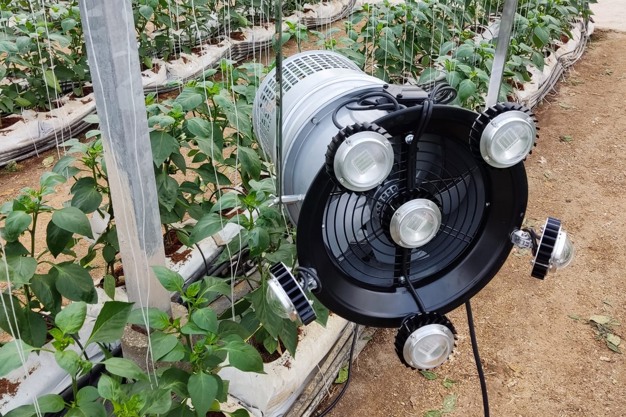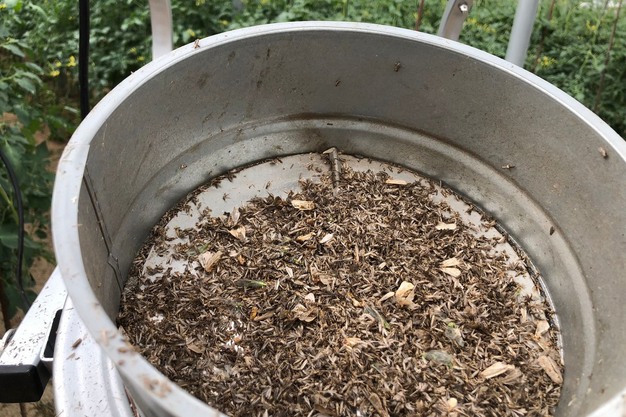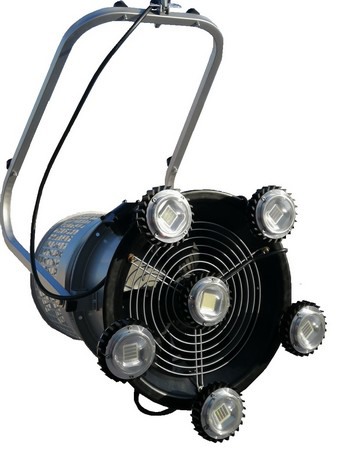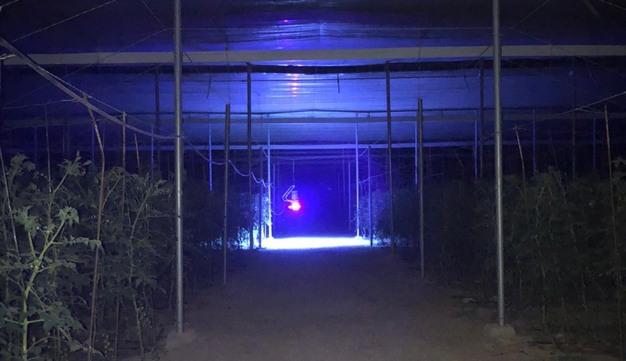Tomato growers have been dealing with Tuta absoluta for years now, and it remains a concerning pest, as it can infest tomato plants at any stage of development and damage up to 100% of the affected crops. It has a very high reproduction rate and short biological cycles that become even faster in summer.
 © Hwongcc | Dreamstime
© Hwongcc | Dreamstime
"Summer is precisely when we grow Valencian tomatoes in our farms in Segorbe," says Alberto Torres, from the Italian company Masía Ferrer S.L. "And this year, after 10 years without having had any problems with Tuta, we were hit by the pest with such intensity that we found ourselves unable to cope with it."
An adult female Tuta can lay up to 260 eggs which, in optimal conditions, can reach maturity in less than 30 days. So, with cycles allowing for up to 10-12 generations per year, the increase in populations without adequate control can be mathematically exponential.
"Once the pest is detected in a plantation it is very difficult to control it with the authorized products available today, because many active substances have been banned and those that remain are not very effective," says Alberto. "I had read about Biocaptur and the mechanism to capture the Tuta absoluta with a system based on LED lights, and since I was looking for a solution, I decided to contact the company to test the equipment as soon as possible."

Biocaptur, devised by Almeria-based engineer Antonio Tortosa, is a device that uses a patented light recipe that attracts and captures the adult Tuta absoluta moth, eliminating the insects with reproductive capacity that are responsible for the spread of the pest
"From day one, we saw that it was incredibly effective. The number of moths it is capable of capturing every night is surprising. In fact, to calculate the amount, we thought of measuring them by weight, because there are countless of them. This gave us a very realistic idea of how widespread the pest was and how difficult it would have been to try wiping it out with the methods we were using."

It's all in the light "By testing different wavelengths, we found the exact one that the Tuta absoluta feels irresistibly attracted to, and we decided to build the Biocaptur device," says Antonio Tortosa, manager of Biocaptur. "The growers using our technology all over the world, not only in Europe, but also in Saudi Arabia and Kenya, are thrilled by how effective it is. It doesn't use any chemicals; it is based on physical principles (just light and mechanical), so Biocaptur is also certified for use in organic farming and is perfectly compatible with biological pest control."
"By testing different wavelengths, we found the exact one that the Tuta absoluta feels irresistibly attracted to, and we decided to build the Biocaptur device," says Antonio Tortosa, manager of Biocaptur. "The growers using our technology all over the world, not only in Europe, but also in Saudi Arabia and Kenya, are thrilled by how effective it is. It doesn't use any chemicals; it is based on physical principles (just light and mechanical), so Biocaptur is also certified for use in organic farming and is perfectly compatible with biological pest control."
Too late to save
"In our case, the pest had affected such mature plants that it had become too late to save the production with biological control," says Alberto. "The Tuta pest can be kept under control from the beginning with releases of Nesidiocoris, but seeing the effectiveness of this system, we think that the future lies in the combination of biological control with the Biocaptur system. In fact, we have bought four more and next year we plan to use them from the beginning of the campaign."

"I am pleasantly surprised by the machine's efficiency. Together with biological control, it is the only tool giving me the confidence to start producing tomatoes again. In fact, if I hadn't found a real solution for the Tuta, I would have considered giving up on tomatoes after this year's experience."
 For more information:
For more information:
Biocaptur
Tel.: +34 641 517 153
info@biocaptur.com
https://biocaptur.com
